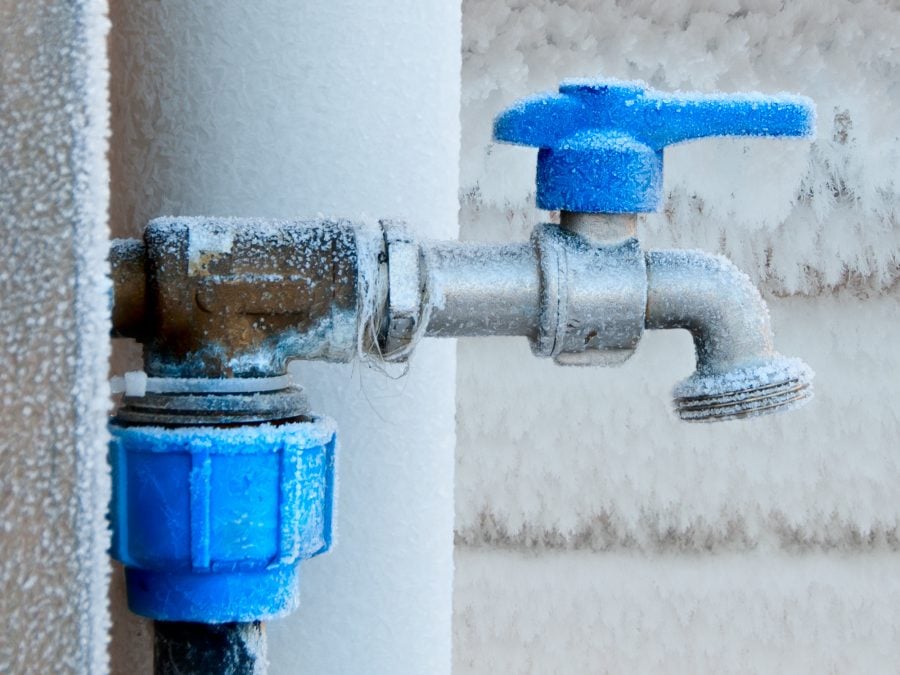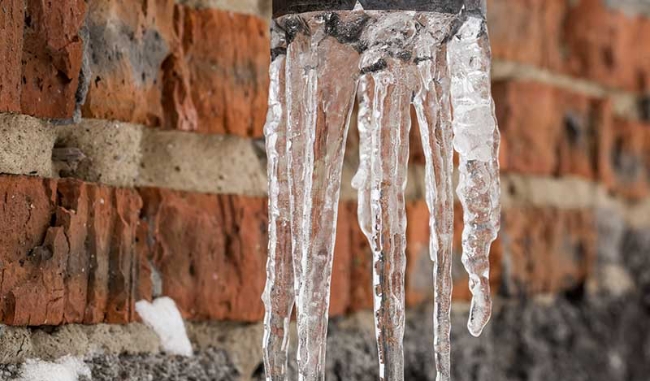They are making several good points regarding 6 Ways to Prevent Frozen Pipes in general in this article following next.

Winter can damage your pipes, particularly by freezing pipes. Right here's just how to avoid it from taking place and what to do if it does.
Introduction
As temperature levels drop, the danger of icy pipes rises, potentially leading to costly repairs and water damage. Understanding how to avoid frozen pipelines is critical for home owners in cool environments.
Prevention Tips
Protecting vulnerable pipes
Cover pipelines in insulation sleeves or use warmth tape to shield them from freezing temperatures. Focus on pipes in unheated or external locations of the home.
Home heating strategies
Keep indoor spaces properly warmed, particularly locations with pipes. Open up cupboard doors to enable warm air to circulate around pipes under sinks.
How to recognize icy pipelines
Look for lowered water flow from taps, uncommon smells or noises from pipelines, and noticeable frost on subjected pipes.
Long-Term Solutions
Architectural adjustments
Think about rerouting pipelines far from exterior walls or unheated locations. Include extra insulation to attic rooms, cellars, and crawl spaces.
Upgrading insulation
Invest in high-quality insulation for pipelines, attics, and walls. Correct insulation aids maintain regular temperatures and decreases the threat of icy pipes.
Securing Outside Plumbing
Garden tubes and exterior faucets
Separate and drain pipes garden hose pipes prior to winter season. Set up frost-proof faucets or cover outdoor faucets with insulated caps.
Comprehending Icy Pipelines
What causes pipelines to ice up?
Pipelines freeze when exposed to temperatures below 32 ° F (0 ° C) for prolonged durations. As water inside the pipelines ices up, it broadens, taxing the pipe wall surfaces and possibly triggering them to break.
Risks and problems
Icy pipelines can cause water system disturbances, residential or commercial property damages, and costly fixings. Ruptured pipes can flood homes and cause extensive structural damages.
Indicators of Frozen Water Lines
Determining icy pipes early can stop them from rupturing.
What to Do If Your Pipelines Freeze
Immediate activities to take
If you presume icy pipelines, maintain faucets open to ease stress as the ice thaws. Utilize a hairdryer or towels soaked in hot water to thaw pipes gradually.
Verdict
Protecting against icy pipes needs aggressive actions and fast actions. By understanding the causes, indications, and preventive measures, home owners can shield their plumbing during cold weather.
Helpful Tips to Prevent Frozen Pipes this Winter
UNDERSTANDING THE BASICS: WHY PIPES FREEZE AND WHY IT’S A PROBLEM
Water freezing inside pipes is common during the winter months, but understanding why pipes freeze, and the potential problems it can cause is crucial in preventing such incidents. This section will delve into the basics of why pipes freeze and the associated problems that may arise.
THE SCIENCE BEHIND FROZEN PIPES
When water reaches freezing temperatures, it undergoes a physical transformation and solidifies into ice. This expansion of water as it freezes is the primary reason pipes can burst. As the water inside the pipe freezes, it expands, creating immense pressure on the walls. If the pressure becomes too great, the pipe can crack or rupture, leading to leaks and water damage.
FACTORS THAT CONTRIBUTE TO PIPE FREEZING
Low Temperatures: Extremely cold weather, especially below freezing, increases the risk of pipes freezing. Uninsulated or Poorly Insulated Pipes: Pipes located in unheated areas, such as basements, crawl spaces, or attics, are more prone to freezing. Insufficient insulation or lack of insulation altogether exacerbates the problem. Exterior Wall Exposure: Pipes running along exterior walls are susceptible to freezing as they encounter colder temperatures outside. Lack of Heating or Temperature Regulation: Inadequate heating or inconsistent temperature control in your home can contribute to frozen pipes. PROBLEMS CAUSED BY FROZEN PIPES
- Pipe Bursting: As mentioned earlier, the expansion of water as it freezes can cause pipes to burst, resulting in significant water damage.
- Water Damage: When pipes burst, it can lead to flooding and water damage to your property, including walls, ceilings, flooring, and personal belongings.
- Structural Damage: Prolonged exposure to water from burst pipes can compromise the structural integrity of your home, leading to costly repairs.
- Mold and Mildew Growth: Excess moisture from water damage can create a favorable environment for mold and mildew growth, posing health risks to occupants.
- Disrupted Water Supply: Frozen pipes can also result in a complete or partial loss of water supply until the issue is resolved.
WHY CERTAIN PIPES ARE MORE PRONE TO FREEZING
- Location: Pipes located in unheated or poorly insulated areas, such as basements, crawl spaces, attics, or exterior walls, are at higher risk of freezing.
- Exterior Pipes: Outdoor pipes, such as those used for irrigation or exposed plumbing, are particularly vulnerable to freezing as they are directly exposed to the elements.
- Supply Lines: Pipes that carry water from the main water supply into your home, including the main water line, are critical to protect as freezing in these lines can affect your entire plumbing system.
- Underground Pipes: Pipes buried underground, such as those connected to sprinkler systems or outdoor faucets, can be susceptible to freezing if not properly insulated.
https://busybusy.com/blog/helpful-tips-to-prevent-frozen-pipes-this-winter/

I have been very taken with How To Avoid Freezing Pipes and I really hope you enjoyed reading the entire entry. Kindly pause to promote this page if you enjoyed it. Bless you for your time. Please check our blog back soon.
Start Now